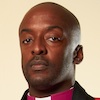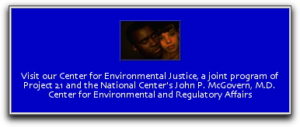01 Nov 2008 Don’t “Change” Religious Freedom, by Bishop Council Nedd II
 As the nation waits with great anticipation for President-Elect Barack Obama to begin unveiling his policies for rescuing our economy and managing our two wars, the real indicator of his presidential success may be how well he handles his most ardent supporters.
As the nation waits with great anticipation for President-Elect Barack Obama to begin unveiling his policies for rescuing our economy and managing our two wars, the real indicator of his presidential success may be how well he handles his most ardent supporters.
While Americans may have voted for “change,” the Pandora’s Box of extreme political interests supporting Obama’s candidacy could end up shocking many of his supporters.
In 2004, Eli Pariser of the leftist MoveOn.org said of the Democratic Party: “Now it’s our party. We bought it, we own it and we’re going to take it back.” Obama’s rise to power exemplifies MoveOn’s agenda. With his successful campaign concluded, the hard-left no longer needs to remain inconspicuous. It undoubtedly now expects its share of the electoral spoils.
Extremists held their tongues as Obama appealed to people of faith. They restrained themselves as the Democratic National Convention opened for the first time with an inter-faith service. They remained calm when the nominee announced his interest in keeping parts of President Bush’s faith-based initiative.
Those wanting to regulate the influence of religion in American public life still overwhelmingly backed Obama. Since enforcing the mythical mandate of “separation of church and state” is a cornerstone of the liberal agenda, it is sure to be something President Obama will be compelled to address.
Just before Election Day, the anti-faith Freedom from Religion Foundation filed a federal lawsuit aimed at declaring the National Day of Prayer (the first Thursday of May) as unconstitutional because it “create[s] a hostile environment for nonbelievers who are made to feel as if they are political outsiders.”
Considering that judges have already found reasons to remove “under God” from the Pledge of Allegiance and remove reproductions of the Ten Commandments from courthouses, it isn’t hard to imagine the National Day of Prayer being declared illegal. If this happens, will Obama fight for prayer? Will he oppose some of his most loyal supporters and appeal the decision to the U.S. Supreme Court? Will he press his colleagues on Capitol Hill to pass legislation to protect the National Day of Prayer?
I highly doubt it.
“Under God” is still in the Pledge, but only because the Supreme Court threw out the case on a legal technicality. The next time – be it the validity of the Pledge, our “In God We Trust” motto or the National Day of Prayer – could be very different. President Obama’s appointments to the bench can be expected to practice the judicial activism that tears down our nation’s religious traditions.
Beyond the courts, liberal advocacy groups want the government to crack down on expressions of faith in the public square.
The American Civil Liberties Union, for instance, has an ambitious post-election agenda specifically calling on Obama to broaden the powers of the Department of Justice’s Special Counsel for Religious Discrimination. Established in the Bush Administration to ensure civil rights protections address religious discrimination, the ACLU wants it to investigate suspected violations of the Constitution’s Establishment Clause “to help ensure that the government does not promote, endorse or favor any religious practice or belief.”
It’s not hard to imagine government investigators harassing local town councils for opening meetings with a prayer under this new regime.
And that faith-based initiative Obama supported? The ACLU wants strict regulations and monitoring of groups getting government funds. This includes the possibility of forcing groups to compromise the principles of their faith to participate.
Such visions terrify many Americans of faith. I cannot count how many times since the elections that a colleague, friend or parishioner expressed anxiety over what could happen to their religious freedom if Obama’s most militant supporters have their way.
Barack Obama promised us change, not a revolution in the way Americans are allowed to express their faith. That, however, may very well be what we get. This change may eventually be what people remember the most – and not in a good way – about the Obama era.
# # #
Project 21 member Council Nedd II, the bishop of the Chesapeake and the Northeast for the Episcopal Missionary Church, is the honorary chairman of In God We Trust (http://www.ingodwetrustusa.org) – a group formed to oppose anti-religious bigotry. Comments may be sent to [email protected].
Published by The National Center for Public Policy Research. Reprints permitted provided source is credited. New Visions Commentaries reflect the views of their author, and not necessarily those of Project 21 or the National Center for Public Policy Research.




